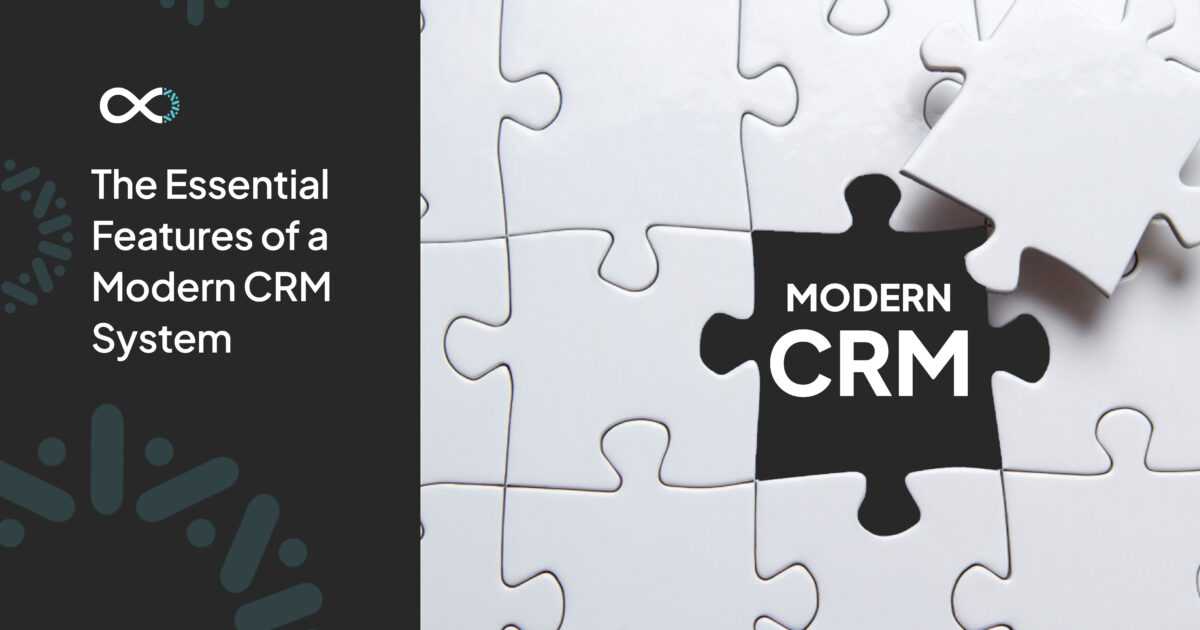Businesses can increase overall productivity, improve client relationships, and streamline procedures with the aid of a contemporary client relationship management (CRM) system. Regardless of the size of your company, implementing a CRM system can revolutionise the way you handle customer information, correspondence, and sales.
The following are the key components of a contemporary CRM system that can help you:
1. Contact Management
The main purpose of a CRM system is to assist companies in effectively managing and organising client data. You may keep important information about your clients, such as contact information, past purchases, and interactions, using the contact management function. You can easily track sales, communications, and client preferences to improve personalisation by centralising this data.
2. Lead and Opportunity Management
Modern CRM systems allow you to track leads from initial contact through to conversion. With lead management features, businesses can automate lead capture, scoring, and follow-ups. Opportunity management lets sales teams monitor deals and identify the best chances for closing sales. This feature ensures that no opportunity is missed and helps businesses focus on high-value prospects.
3. Sales Automation
Sales automation is one of the key advantages of using a CRM system. This feature streamlines sales tasks such as email follow-ups, scheduling, and reporting. With automated workflows, your sales team can focus more on building relationships and less on repetitive tasks. Additionally, sales forecasting tools provide insights into future revenue, helping businesses plan better.
4. Customer Support and Service Management
Providing excellent customer service is crucial for business success. A modern CRM integrates customer service tools to handle inquiries, complaints, and feedback efficiently. It allows businesses to track support tickets, prioritize customer issues, and ensure timely resolutions. By centralizing all customer service data, CRM systems enable businesses to offer a personalized service experience.
5. Analytics and Reporting
Data-driven decisions are key to improving business performance. CRM systems come equipped with powerful analytics and reporting tools that track sales performance, customer behavior, and team productivity. These insights can help businesses optimize their strategies, identify trends, and improve customer satisfaction.
6. Marketing Automation
Marketing automation integrated within a CRM system can help businesses create personalized campaigns, nurture leads, and measure effectiveness. From email marketing to social media engagement, a modern CRM allows businesses to create targeted campaigns based on customer behavior and preferences, leading to higher engagement and conversion rates.
7. Mobile Accessibility
In an increasingly mobile-driven world, it’s crucial for CRM systems to be accessible on the go. Modern CRM platforms offer mobile apps that allow sales and customer service teams to access customer data, update records, and respond to inquiries from anywhere. This feature ensures that teams stay productive and connected, even when they’re away from the office.
8. Integration with Other Tools
A modern CRM system is only effective when it integrates with other business tools. Whether it’s email platforms, marketing software, or accounting systems, integration ensures that data flows smoothly between systems. This helps businesses maintain accurate and consistent customer information across departments.
9. Customizable Dashboards
Every business is unique, and so are its reporting needs. A modern CRM system offers customizable dashboards that allow businesses to create custom views based on individual roles and preferences. This means sales managers can get an overview of sales performance, while marketing teams can track campaign results in real time.
10. Collaboration Tools
Collaboration is at the heart of a successful CRM system. With built-in collaboration features, CRM systems allow teams to share information, assign tasks, and communicate in real-time. This improves workflow efficiency and ensures that everyone is on the same page, leading to better decision-making and customer interactions.
11. Data Security and Compliance
In an age of data breaches and increasing privacy regulations, a modern CRM system provides robust security features. From encryption to role-based access controls, CRM platforms prioritize data protection to ensure that customer information remains safe. Additionally, many CRMs are designed to observe industry-specific regulations, such as GDPR, ensuring your business stays compliant.
12. Artificial Intelligence (AI) and Machine Learning
AI and machine learning capabilities are becoming increasingly prevalent in CRM systems. These technologies help businesses predict customer behavior, personalize interactions, and automate decision-making. AI-driven insights can suggest the best time to contact a lead, recommend products, and even flag potential issues before they arise.
The right CRM can transform the way your business interacts with customers, enhances productivity, and drives growth. By choosing a CRM with the right features smart to your business needs, you can stay ahead of the competition and foster customer loyalty.



